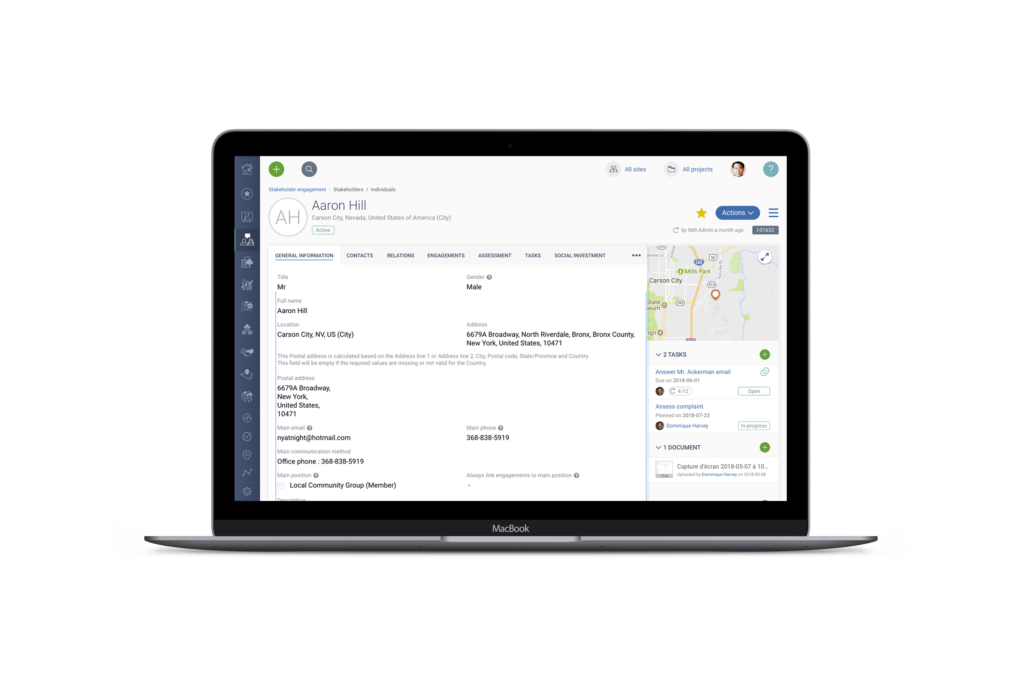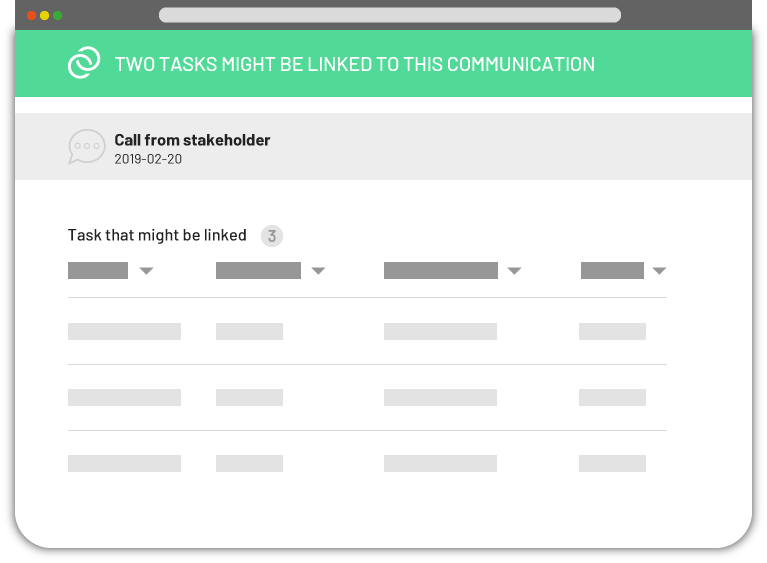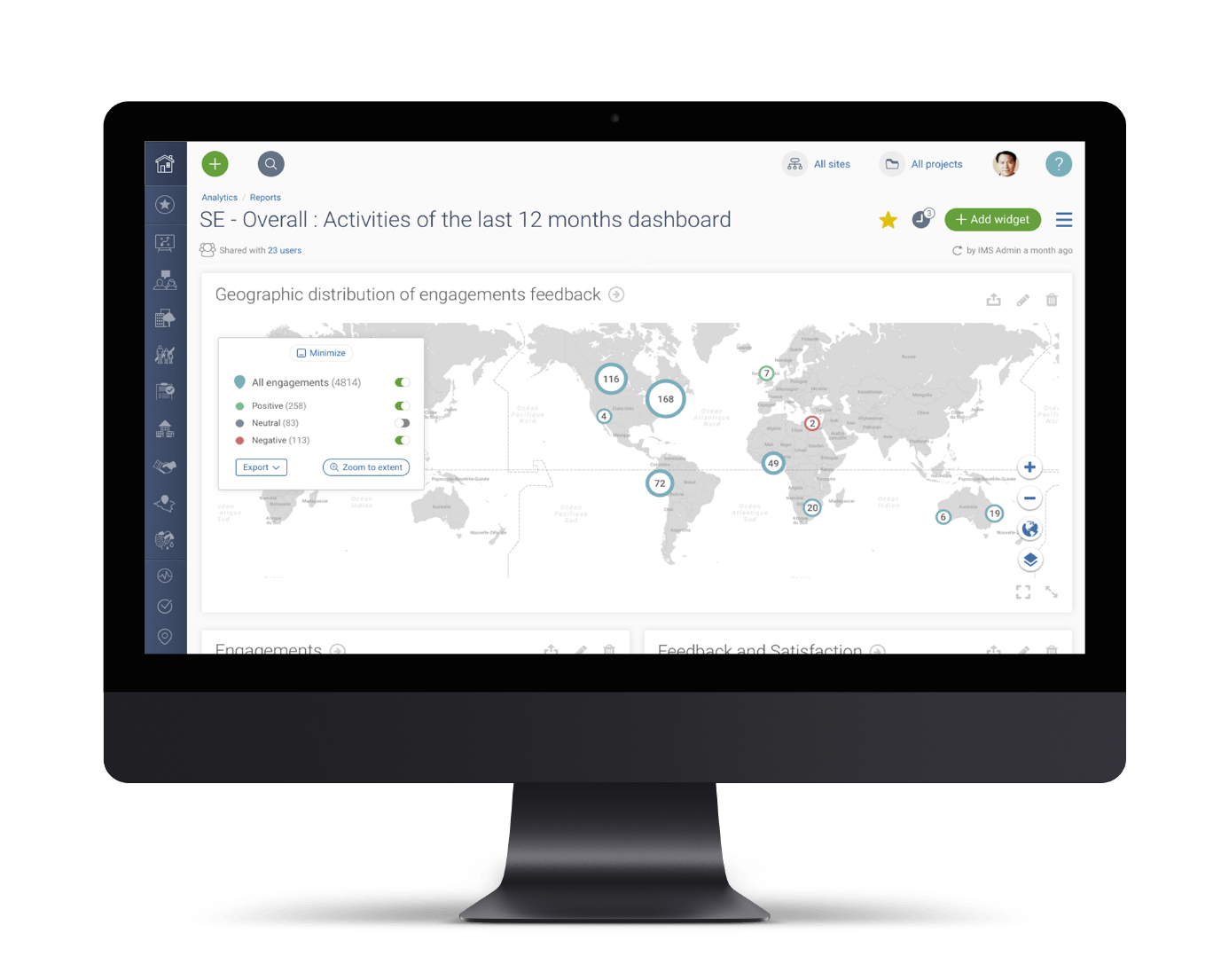Putting
Data to
Hard Work
How a mining project in Peru is using real time data to simplify community resettlement, track environmental data, and secure social acceptance.
Challenges
Main issues
- Social acceptance
- Resettlement of town
- Poverty
- Governmental requirements
- Seeking specialised and local
The Boréalis application strengthened our social programs, providing us with a tool to demonstrate transparency in our consultation, communication and eligibility processes in the social area. It also provides an integrated monitoring system of environmental quality.
Ezio Buselli Canep - VP Environment, Health and Safety at Chinalco
The project
Minera Chinalco Peru S.A. acquired Peru Copper back in 2007. During the development phase of the Toromocho project its main challenge was the resettlement of mining town Morococha in order to access one of Peru’s most important copper reserves. Before it could begin project development, Chinalco had to run social and environmental baseline surveys.
To carry out activities it had to obtain and maintain social acceptance and report environmental metrics (quality of air, water, etc.) to the Peruvian government.
Using the Boréalis application, Chinalco was able to work with existing impact assessment data for local employment, environmental monitoring and identification of vulnerable stakeholders.
Solution
Using the Boréalis application to interpret socio-environmental baseline data, taking the appropriate actions to avoid crisis.
Reserves estimates at
1,526 tons
of pure copper, molybdenum and silver
Toromocho mine is
142 k m
North-East of Lima
Mine is expected to operate for
36 years
Social baseline:
5000 peoples
living in Morococha
Located at the impressiove altitude of
4500 meters
above sea level
Town established for over
100 years
(3 generations) and is the districtMs capital
Outcomes
- Resettlement done on time, within budget
- Social acceptance throughout project lifecycle
- Benefit from existing baseline data
- Hiring of specialised local workforce
- Integrating new and existing data for better decision-making
Hiring local employees for specialised positions
Boréalis helped us improve the management of our social responsibility information and processes, allowing us to use data efficiently and in real time. Project monitoring reports are now produced in a single click. Simpler data management allows us to generate project reports with granular information and according to specific quality control indicators, a process that used to take several hours.”
Ezio Buselli Canepa - VP Environment, Health and Safety at Chinalco
Identification of vulnerable people
Resettlement of groups of 5,000 or more is quite frequent in the mining industry. But dealing with large communities also means that not all people have the same life quality. Some might live quite well while others can be very poor. It’s exactly the situation that Chinalco faced at the Toromocho project. Identifying vulnerable families and individuals was key to the success of the resettlement.
Monitor environmental data to comply with governmental regulations
Tomorocho’s location is particular. At 4,500 meters above sea level, its watershed has potential to impact not only communities located close to the project, but others that are far away. Strict governmental regulations apply to the project and Chinalco has to demonstrate its compliance through environmental impact studies before exploitation and ongoing monitoring during operations. Failure to do so could result in expensive fines or a revoked license.
Solution
Collecting information for impact assessment studies is one thing, but being able to use this data to improve operations is another. Chinalco turned to Boréalis for a solution that would facilitate operations and help managers take appropriate decisions. The Boréalis application did not only provide a central database for social and environmental data, it allowed Chinalco to become proactive by identifying potential issues ahead of time and reacting accordingly. Thanks to transparent processes the project maintained social acceptance and activities took place as planned.
Finding skilled employees in local communities
Before it could start any project development, Chinalco had hired a consulting firm for social impact studies. The 5,000 stakeholders were surveyed by a team of 20 consultants over the course of one month. Oftentimes, when social baseline data is collected for reports it then goes down the drain once reporting is done. Not this time. Information gathered by the field team on the Tomorocho site was entered in the Boréalis application. When time came to seek specialised employees, all that Chinalco had to do was consult the application to access a list of 10 persons with the desired pedigree for the opened positions. Talk about win-win: Chinalco was able to contact skilled candidates and local community members got access to jobs that correspond to their skill set.
Fair resettlement and compensation in respect of vulnerabilities
Like in most towns, different levels of poverty could be found within the community of Morococha. Through survey data entered in the Boréalis application and 5 pre-established criteria, it was able to identify which stakeholders were more vulnerable. Criteria for vulnerability included: single mother, elderly, handicapped, families with more than 5 kids under 18 and extreme poverty. Detailed reports produced by the application for each household made it possible for Chinalco to identify and compensate accordingly the most vulnerable stakeholders.
Transparent and accessible study results
Many environmental factors such as humidity levels, air
temperature and quality, etc. have to be monitored by Chinalco
to comply with Peruvian regulations.
The most important one is water quality. Chinalco wanted to limit the manipulation of environment related data to ensure that lab results were as precise as possible. Lab staff entered all results directly into the Boréalis application and produced detailed reports on under ground and surface water quality. In addition to the transparent results that were provided to authorities, the field team was able to take appropriate measures when indicators exceeded limits.

Inspired by this great success story?
Start writing yours today!






